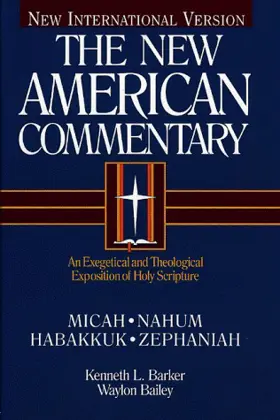

Micah, Nahum, Habakkuk, Zephaniah
Collections
This book appears in the following featured collections.
- First Commentary Set by Brian LeStourgeon
- Ultimate Commentary Collection: OT Expositional by John Glynn
- Basic Library Booklist by Detroit Baptist Theological Seminary
- Building an OT Commentary Library by Invitation to Biblical Interpretation (Kostenberger & Patterson)
- TGC: Preaching Commentaries by The Gospel Coalition
Reviews
Things I liked:
The background information in the Habakkuk commentary was outstanding. I particularly enjoyed the discussion of how Habakkuk fit in with the rest of the Minor Prophets. Bailey clearly explained how the Minor Prophets fit together with Habakkuk as the climax of the crisis in the overall plot sketched by the post exilic editor.
Bailey does draw heavily on the work of other scholars. Even though it isn’t the longest commentary out there, I felt that I got a good survey of what scholarship is saying on Habakkuk.
Bailey grasps the theology of Habakkuk very well. I gained clearer insight into the attitude of Habakkuk and how he interacted with God.
Things I didn’t like:
I would have liked a little more help on the grammar. I find the NAC inconsistent on this issue. Some have a substantial amount of footnotes dealing with grammatical issues, some don’t. I would have liked more here.
Pretty much everything about the Micah commentary by Barker. It was short, had little technical help, and was uninspiring.
Conclusion:
If you’re looking for a commentary on Micah, look elsewhere (especially Leslie Allen in the NICOT). If you want a good commentary on Habakkuk (and I assume Nahum and Zephaniah) this would be a good place to start. Bailey possesses the brevity and clarity that all commentators would do well to imitate, and his exposition is enriching, as he forces you to wrestle with the issues, just like Habakkuk did. As an added bonus, Bailey provides you with a wealth of information in the introduction sections. I give Barker 2 stars and Bailey 4.5 stars, so I guess the book gets 4 stars as a whole.





